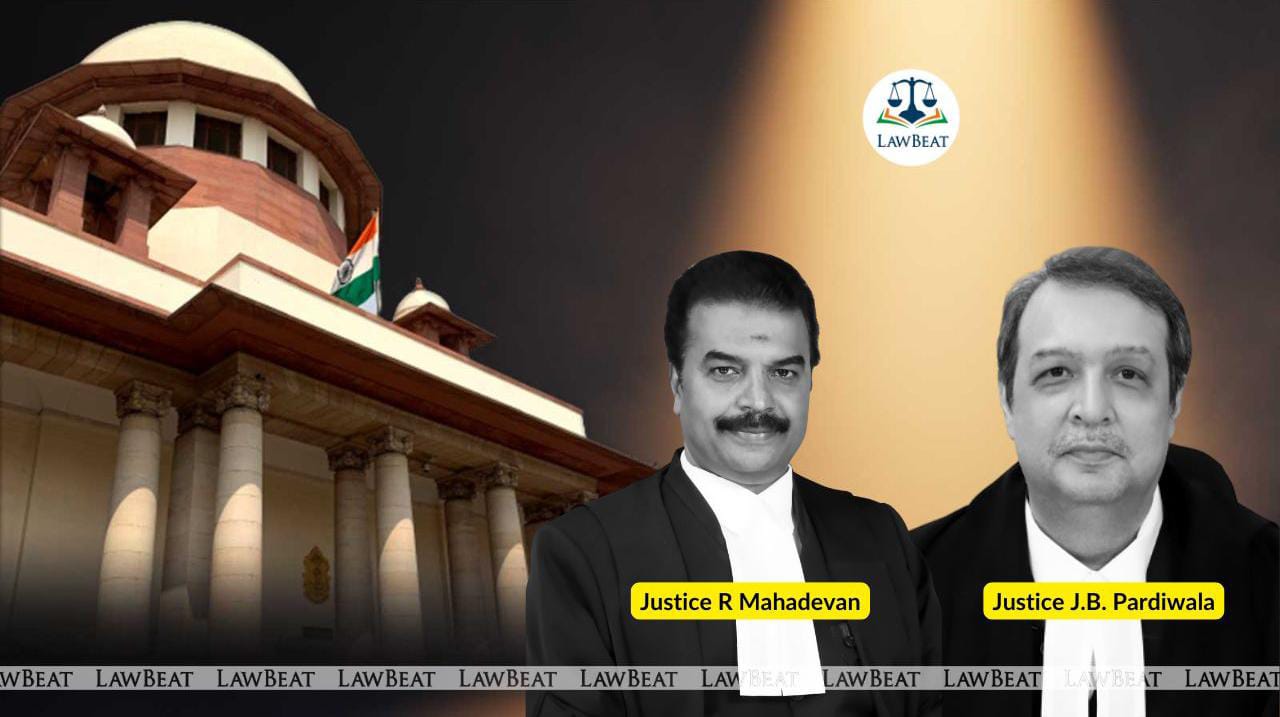Arbitration agreement not affected by death of a party: SC

The Supreme Court held that the high court committed no error, let alone any error of law
The Supreme Court has said that the existence of an arbitration agreement is not affected by the death of a party to the arbitration agreement.
A bench of Justices J B Pardiwala and R Mahadevan said an arbitral agreement and the award is enforceable by or against the legal representatives of the deceased.
Dealing with a special leave petition by Rahul Verma & others, the court examined whether the legal heirs of a deceased partner in a partnership firm, being non-signatories to the partnership deed and in the absence of their explicit consent, can still be bound by the arbitration agreement prescribed therein.
The bench also considered whether the right to sue for the rendition of accounts survives to the legal heirs of the deceased partner, entitling them to invoke the arbitration clause in the partnership deed.
"The term ‘partners’ extends to and would include their legal heirs, representatives, assigns or legatees, etc. Persons claiming under the rights of a deceased person are the representatives of the deceased party, and therefore, both the parties to the agreement and their legal heirs are entitled to enforce an arbitral award and are bound by it," the bench said.
The court also held the right to sue for rendition of account also survives, ensuring that the legal representatives can assert or defend claims arising from the partnership agreement.
The litigation originated from a dispute between a partner of a partnership firm consisting of the legal heirs of another deceased partner. The partnership firm consisted of three partners. It so happened that two of them passed away on December 24, 2022, and November 21, 2023, respectively.
The respondents (original defendants in commercial suit) preferred a petition under Section 8 of the Act of 1996 before the commercial court, at Dibrugarh for dismissal of the suit and a reference to arbitration. The petition was filed on the basis of an arbitration clause in the partnership deed. The said petition was dismissed by the Civil Judge.
Aggrieved by the dismissal of their petition under Section 8 of the Act of 1996, the respondents preferred an arbitration appeal. The high court by the impugned judgment held that a reading of clause no 2 of the partnership deed made it evident that the partnership deed was binding upon the heirs of the deceased partner.
The high court further observed that clause no 15 of the partnership deed specified the circumstances under which the parties may resort to arbitral proceedings.
It held that the dispute between the parties pertained to the affairs of the partnership firm, specifically its dissolution. Since this particular circumstance was addressed in the partnership deed, Section 42(c) of the Partnership Act, 1932 would not impede the court from referring the matter to arbitration.
The legal heirs of the deceased partner are entitled to invoke the arbitration clause and the sole surviving partner is also entitled to invoke the arbitration clause against the legal heirs of the deceased partner, it held.
The apex court, on its part, said the decision in the case of Ravi Prakash Goel Vs Chandra Prakash Goel & Anr, (2008) squarely covered the facts of the present case. "This court held that an arbitration agreement does not cease to exist on the death of any party and the arbitration agreement can be enforced by or against the legal representatives of the deceased", the bench noted.
The court emphasised on the definition of a ‘legal representative’ under Section 2(1)(g) of the Act of 1996 to hold that an arbitral agreement and the award is enforceable by or against the legal representatives of the deceased.
The bench also pointed out in Jyoti Gupta Vs Kewalsons & Ors (2018), the High Court of Delhi also held that an arbitration agreement does not stand discharged on the death of a partner and it can be enforced by the legal heirs of the deceased-partner. It categorically held that merely because the arbitration agreement refers to the disputes between ‘partners’, it cannot bar the legal heirs from seeking their remedies by virtue of the arbitration agreement.
The bench thus said in light of Section 40 of the Act of 1996, the existence of an arbitration agreement is not affected by the death of a party to the arbitration agreement.
"As a consequence, the right to sue for rendition of account also survives, ensuring that the legal representatives can assert or defend claims arising from the partnership agreement," the bench said.
Applying this exposition of law in the facts of the present case, the bench said, since the legal heirs of the deceased partner, namely, Sampat Lal Verma, have stepped into the shoes of the deceased, clause 15 of the partnership agreement will operate to bind both the petitioners and the respondents.
"We have reached the conclusion that no error not to speak of any error of law could be said to have been committed by the High Court in passing the impugned judgment," the bench said, dismissing the special leave petition filed by Rahul Verma and others.
Case Title: Rahul Verma & Ors Vs Rampat Lal Verma & Ors
